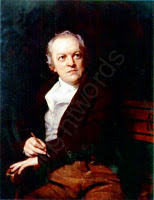Robert Frost

Robert Frost ( 1874 — 1963 ) BIOGRAPHY Robert Frost: The Man and His Work - 1923 "Sometimes I have my doubts of words altogether, and I ask myself what is the place of them. They are worse than nothing unless they do something; unless they amount to deeds, as in ultimatums or battle-cries. They must be flat and final like the show-down in poker, from which there is no appeal. My definition of poetry (if I were forced to give one) would be this: words that become deeds." "All poetry is a reproduction of the tones of actual speech." "There are two types of realists: the one who offers a good deal of dirt with his potato to show that it is a real one, and the one who is satisfied with the potato brushed clean. I'm inclined to be the second kind. To me, the thing that art does for life is to clean it, to strip it to form" "A poem begins with a lump in the throat; a home-sickness or a love-sickness. It is a reaching-out towar...

